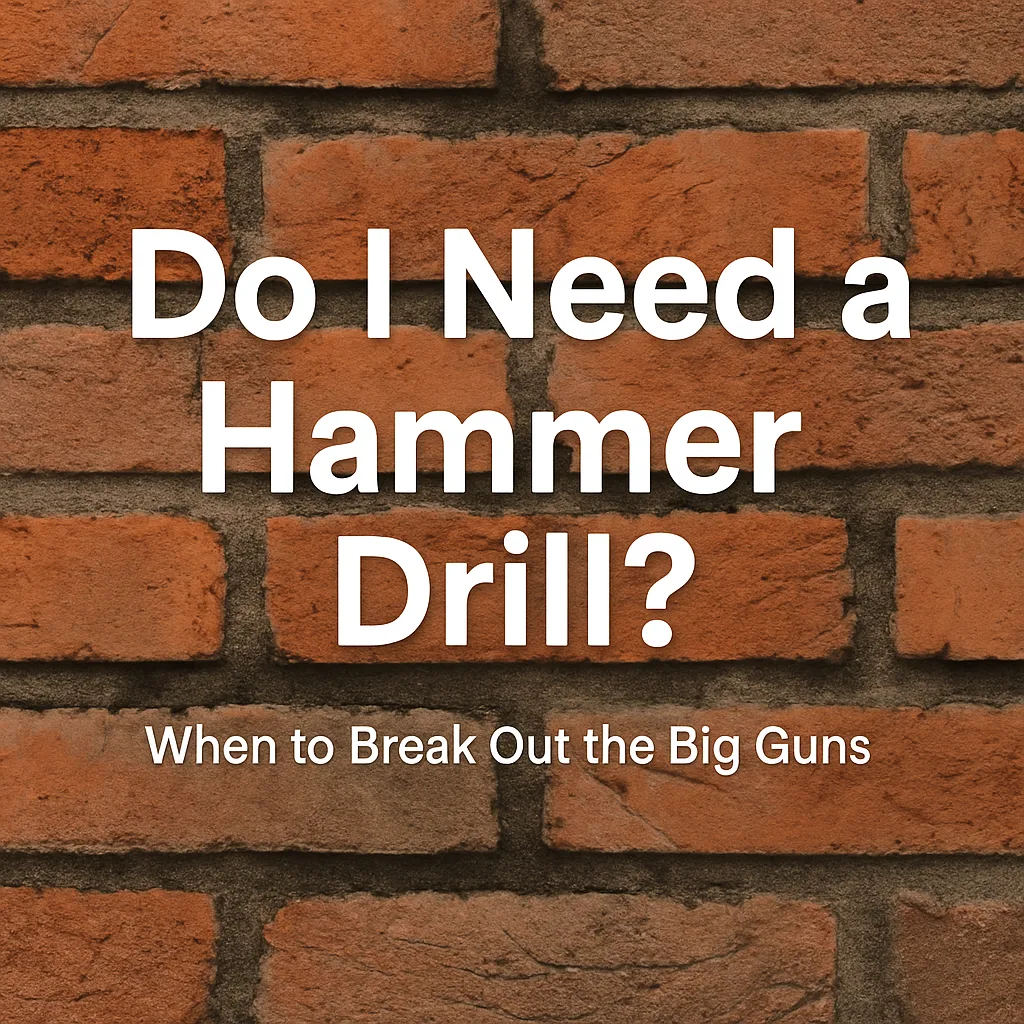New! DIY Project Planner. Plan smarter, skip the spreadsheets. Start Your Free Trial Today →

If you’re staring down a wall of concrete, brick, or block and asking yourself, “Do I need a hammer drill for this?” You’re not alone. It’s one of the most common questions DIYers run into when their regular drill just isn’t cutting it. You start a project thinking it’s going to be simple, only to realize your drill is overheating, your masonry bits are worn down, and you’re barely making a dent. But before you rush out and buy the biggest tool in the aisle, let’s break down what you actually need.
This guide explains when a hammer drill is the right choice, when a rotary hammer is better, how they differ, and which models are worth adding to your toolbox. Whether you’re mounting something to an exterior wall or tackling a concrete-heavy backyard project, we’ll help you figure out the right tool—and avoid wasting time and money.
Standard drills are great for wood, drywall, and metal. But once you hit tougher materials like brick or concrete, things change fast. A regular drill will stall out, overheat, or destroy bits in minutes. You’ll end up frustrated—and likely still without a hole.
Here’s when a hammer drill or rotary hammer makes more sense:
If you’ve ever struggled to hang something on your exterior wall and felt like your drill just wasn’t making progress—that’s your sign.
Hammer Drills:
Rotary Hammers:
If you’re only drilling a handful of holes into brick for anchors or screws, a hammer drill is all you need. But if your work involves concrete slabs, exterior walls, or full remodels with repeated masonry drilling, you’ll thank yourself for investing in a rotary hammer.
Powerful, well-balanced, and built to last. Great for drilling into concrete and brick, but still versatile enough for wood, metal, and everyday tasks.
Compact, efficient, and extremely well-made. A great option for DIYers who want reliable power without unnecessary bulk.
Known for high torque and smart electronics, this drill handles tough jobs with ease and lasts for years. Excellent choice for repeat use on mixed materials.
A longtime favorite for good reason. Delivers real impact force without wearing you out. SDS+ chuck and 3 modes make it highly versatile.
Built tough with a reliable motor and easy-to-switch modes. Perfect for anchors, post bases, and working with hard concrete surfaces.
Quiet, powerful, and cordless. An excellent solution for anyone who needs rotary hammer strength without being tied to an outlet.
If your DIY plans include drilling into brick, block, stone, or concrete, a hammer drill is one of the smartest tool investments you can make. It won’t replace your standard drill, but it’ll open the door to all kinds of outdoor and heavy-duty projects you couldn’t tackle otherwise.
And if you’re doing more than the occasional anchor install—like setting post bases, running electrical in masonry, or demo work—a rotary hammer might save you time and sore arms in the long run.
Still unsure? Start with a top-rated hammer drill. You’ll be ready for most home upgrades, and you can always step up to a rotary hammer if your projects demand it.